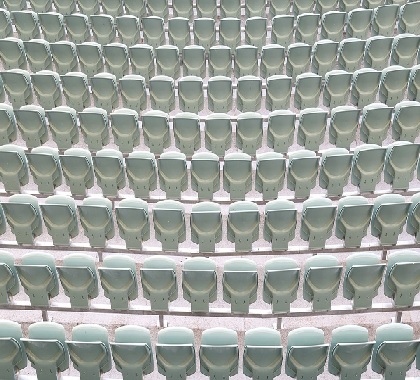Nevada lawmakers approved a tax hike passed to finance taxpayer subsidies for a proposed football stadium in Las Vegas.
The proposal, signed into law by Gov. Brian Sandoval (R) in October, is intended to lure the Oakland Raiders, a privately owned National Football League (NFL) team, to move to Las Vegas.
A new sports stadium, financed with about $750 million in taxpayer funds collected from new hotel taxes, will be built in Las Vegas to house the team if other NFL team owners approve the relocation.
‘More About Political Posturing’
Michael Schaus, communications director for the Nevada Policy Research Institute, says building a taxpayer-funded home for the Raiders is more about politics than prosperity.
“This deal is far more about political posturing than it is about economic development,” Schaus said. “Given the repeated calls for more revenue from local governments, not to mention a massive $1.5 billion [state] tax increase last year, spending such money on a private football stadium clearly demonstrates the skewed priorities of Carson City.”
Schaus says the government should attend to its core functions instead of paying for entertainers.
“At the end of the day, $750 million could ease a lot of fiscal concerns throughout Clark County, including the alleged need for more cops, more teachers, and infrastructure spending,” Schaus said. “The fact that it is being spent on a private football franchise is an insult to citizens who are facing increasingly higher tax burdens for basic government services. For example, roughly $900 million worth of highway and infrastructure spending is going to be accelerated to coincide with the building of the stadium. This is spending that, while already appropriated, will force the county to reprioritize projects.”
Questions Justification
Robert Baade, an economics professor at Lake Forest College, questions the propriety of government giving handouts to businesses such as the Oakland Raiders franchise.
“There have been extensive subsidies that have been provided to professional sports teams, and you have to ask: ‘Is it appropriate that we use public funds to provide for what is fundamentally a private activity?'” Baade said.
Giant Sucking Sound
Instead of bringing economic activity into a geographic area, Baade says sports stadiums can actually drain local wealth.
“Here is one of the things that people don’t often understand, but should understand, about professional sports: The sports providers, meaning the owners and players, often are people who do not live or work outside the season in the community in which the team is located. You’ve got an entertainment activity that really breeds a transfer of funds from resident fans to, in many cases, nonresident players, and in some cases, nonresident owners.”




